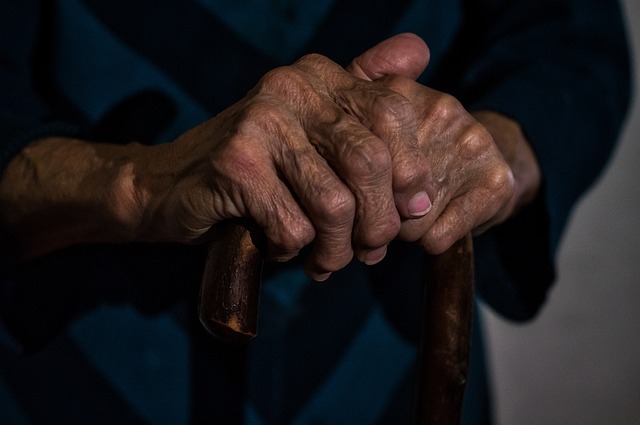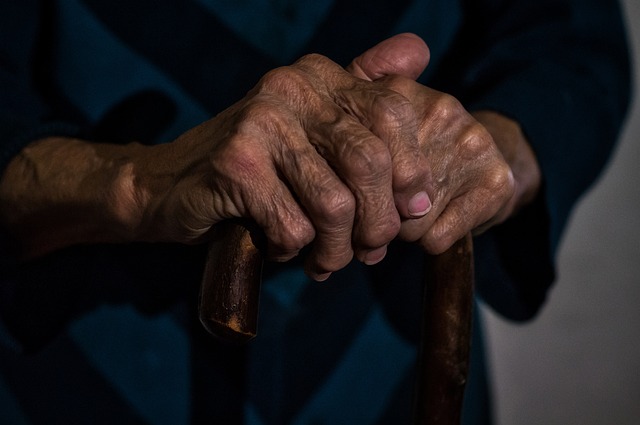Elderly Companion Services are vital in supporting the well-being of seniors by combating loneliness through consistent companionship, assistance with daily tasks, and fostering independence. These services enhance mental health, reduce depression risk, and improve overall quality of life for older adults, especially those without strong family ties or who face mobility challenges. They also connect seniors with community networks, encouraging social interaction and engagement in activities they enjoy. These services offer reassurance to families about their loved ones' safety and well-being, include health monitoring to detect changes promptly, and are tailored to individual needs for personalized support. By preserving the dignity and vitality of seniors, Elderly Companion Services play an indispensable role in an aging society, where such care is increasingly in demand. These services not only combat loneliness but also promote mental and cognitive health, physical activity, and a sense of belonging, ensuring that seniors receive the compassionate and dignified care they need as they age.
Every visit holds the potential to brighten a senior’s day, offering respite from loneliness. This article explores the transformative impact of elderly companion services and the benefits they bring to our aging population. We delve into effective engagement strategies, emphasizing the importance of regular social interactions for the elderly’s well-being. From the critical role of volunteer programs to the necessary training and background checks ensuring safety, this piece provides a comprehensive look at how these services can uplift isolated seniors and foster vibrant community connections. Join us as we highlight the significant contributions of companion services in enriching the lives of lonely elders.
- The Role of Elderly Companion Services in Combating Loneliness Among Seniors
- Identifying the Benefits of Regular Social Interactions for the Elderly
- Strategies for Effective Engagement and Activities During Friendly Visits
- Training and Background Checks: Ensuring the Safety and Well-being of Our Elders
- The Impact of Volunteer Programs on Lonely Elders and Their Communities
The Role of Elderly Companion Services in Combating Loneliness Among Seniors

The role of elderly companion services in addressing the issue of loneliness among seniors is multifaceted and increasingly recognized as a vital component of their well-being. These services offer a lifeline to many older adults who may be experiencing isolation due to the decline in family structures, loss of peers, or mobility challenges. By providing regular, friendly visits, companion services not only offer companionship but also assist with daily activities, ensuring that seniors can maintain independence and a sense of security within their own homes. This human connection can significantly improve mental health outcomes, reduce the risk of depression, and enhance overall quality of life for the elderly. Moreover, these services often go beyond mere companionship by linking elders to broader community networks, fostering social interactions, and promoting active engagement with local activities tailored to their interests. This holistic approach helps to alleviate loneliness, while also providing peace of mind to family members who may be concerned about their loved ones living alone.
The benefits of elderly companion services extend beyond the immediate companionship; they also play a crucial role in identifying and addressing other health concerns through regular check-ins. Companions are trained to notice changes in behavior or health status, which can lead to timely interventions by healthcare professionals. This proactive approach not only supports the physical health of seniors but also ensures that their social needs are met on a consistent basis. The adaptability and personalized nature of these services make them an essential addition to the support system of elderly individuals, particularly in an aging society where the demands for such care are growing. Through tailored visits and activities, elderly companion services provide companionship, practical assistance, and a sense of belonging that is instrumental in combating loneliness among seniors.
Identifying the Benefits of Regular Social Interactions for the Elderly

Regular social interactions are a cornerstone of well-being for individuals of all ages, particularly for the elderly. Engaging with companion services tailored for seniors can significantly enhance their quality of life. These elderly companion services often provide companionship that goes beyond mere conversation; they offer a sense of connection and belonging that is vital for mental health. Studies consistently demonstrate that consistent social engagement helps maintain cognitive function and staves off depression, which are common concerns among the aging population. The presence of a regular visitor or companion can also encourage seniors to engage in physical activities, further supporting their overall health and independence. Moreover, these interactions allow elders to share experiences and wisdom, fostering a multigenerational exchange that enriches both parties. Such services not only alleviate feelings of loneliness but also play a critical role in monitoring the elderly’s well-being, enabling timely interventions should health issues arise. By integrating elderly companion services into their daily lives, seniors can enjoy a more fulfilled and connected existence, which is key to maintaining their dignity and vitality as they age.
Strategies for Effective Engagement and Activities During Friendly Visits

Engaging with lonely elders through friendly visits can significantly enhance their quality of life, and implementing effective strategies is key to making these interactions meaningful. Volunteers and caregivers providing elderly companion services should aim to foster a connection that resonates with the individual’s past experiences, interests, and preferences. Active listening, empathetic communication, and showing genuine interest in their stories are fundamental approaches that can build trust and rapport. Furthermore, incorporating interactive activities tailored to the elder’s abilities and interests can stimulate cognitive function and provide a sense of accomplishment. Simple crafts, board games, or reminiscing about shared historical events can be both enjoyable and beneficial for the elder’s well-being. It’s also essential to consider the timing and duration of visits to ensure they align with the elder’s energy levels and daily routines. By offering consistent, thoughtful, and personalized elderly companion services, volunteers can create lasting and positive experiences for lonely seniors.
To maintain engagement and prevent the visit from becoming monotonous, it’s advisable to introduce a variety of activities that cater to different aspects of the elder’s life. These could include light physical exercises suitable for their mobility, engaging in conversation about current events while providing context if necessary, or even teaching them new skills like using smartphones or computers if they show interest. The goal is to keep the interaction dynamic and adapted to the elder’s evolving needs and responses. By focusing on the individual’s social, emotional, and cognitive needs during friendly visits, elderly companion services can have a profound positive impact, contributing to a more connected and fulfilled life for the elders involved.
Training and Background Checks: Ensuring the Safety and Well-being of Our Elders

Volunteer and professional elderly companion services play a pivotal role in enriching the lives of seniors who may live alone. To ensure the utmost safety and well-being of our elders, these service providers undergo rigorous training that equips them with the necessary skills to engage positively with older adults. This training covers a wide range of topics, including effective communication, empathy, and understanding the unique needs and challenges faced by the elderly. Additionally, comprehensive background checks are conducted to guarantee the safety of those in need. These measures are critical in building trust and fostering meaningful relationships between companions and their elder charges. By implementing these stringent selection and training processes, elderly companion services can provide peace of mind to both the seniors and their families, knowing that they are in the care of vetted and prepared individuals dedicated to their comfort and dignity. The commitment to safety extends beyond the initial vetting; ongoing supervision and continuous professional development are essential to maintain the high standards necessary for providing compassionate and secure companionship to our elders. This dedication to quality service ensures that elderly companion services can be relied upon to make a positive impact on the daily lives of seniors, promoting both their physical health and emotional well-being.
The Impact of Volunteer Programs on Lonely Elders and Their Communities

Volunteer programs offering elderly companion services play a pivotal role in addressing loneliness among the elder population, fostering social engagement and community cohesion. These initiatives not only provide companionship to isolated seniors but also create a supportive network that can enhance their overall well-being. The presence of regular visitors can lead to tangible benefits such as improved mental health, reduced stress levels, and a sense of belonging. This interaction offers the elderly a chance to share experiences, maintain cognitive function through stimulating conversation, and stay connected with the community at large. Consequently, these programs contribute to the prevention of social isolation, which is a growing concern in many societies. The positive impact extends beyond the individual elder as well; it enriches communities by encouraging intergenerational bonds and fostering a culture of empathy and mutual support. As volunteer networks expand, the collective effort can lead to more inclusive and caring environments for all ages, underscoring the importance of these services in enhancing the quality of life for lonely elders.
In conclusion, the initiative to provide friendly visits to lonely elders through elderly companion services is a multifaceted approach that addresses the pressing issue of loneliness among seniors. The benefits of regular social interactions are undeniable, with evidence suggesting that such engagements can enhance both mental and physical health outcomes for the elderly. Strategically planned activities and meaningful conversations during these visits not only combat isolation but also foster a sense of connection and belonging. It is imperative that volunteers undergoing these programs receive proper training and background checks to guarantee the safety and well-being of our elders. The positive ripple effect of volunteer efforts extends beyond individual seniors, contributing to stronger, more cohesive communities. By leveraging elderly companion services, we can collectively create a support network that honors the contributions of our older population and enriches the social fabric of our society.
